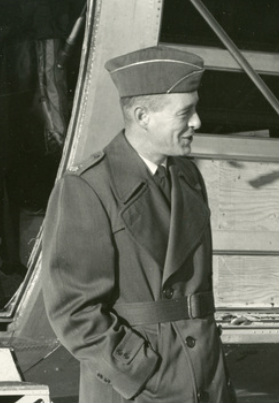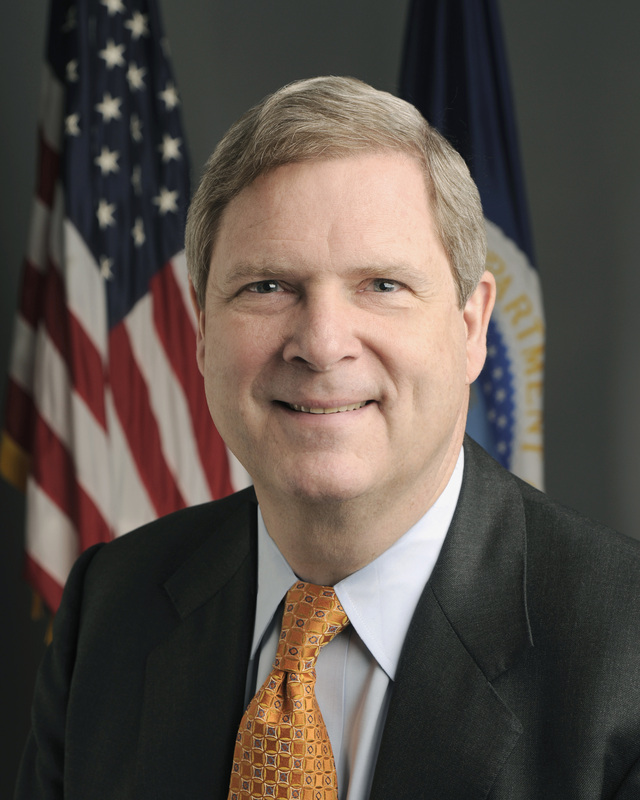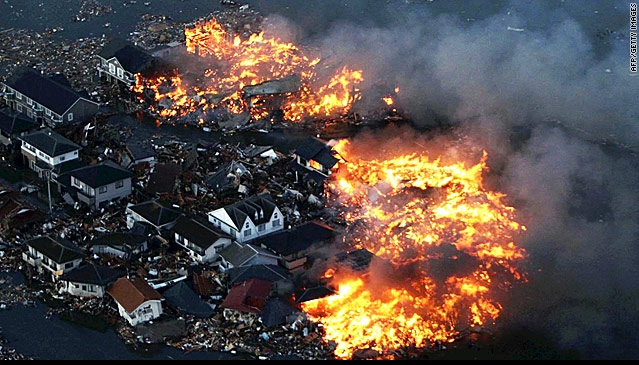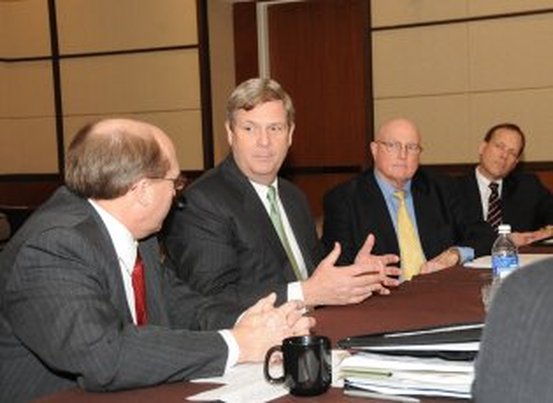Q & A With Secretary of Agriculture Thomas Vilsack
Source: E-mail to author, May 8, 2011
More than fifty years after Thomas proposed the Hog Lift, Secretary Vilsack echoed his Thomas' ideas in light of recent world affairs.
"While it is morally the right thing to do to help others in trouble, it is also the smart thing to do in a world with a global economy and confronting terrorists because you build alliances and friendships that help support your businesses
and protect your citizezdns."
~Thomas Vilsack
Q: From your perspective as the U.S. Secretary of Agriculture, what are the lasting effects of the Hog Lift?
A: "The Japanese people are very traditional people and remember kindness extended to them at times of difficulty. The Hog Lift reflected the generosity of America not long after a bitter and deadly war which included using atomic bombs to help end it. As a result, the Hog Lift helped to establish a deep friendship that exists today. This friendship has strategic and economic importance. Japan is our strongest ally in the region and is in the top five of our trading partners."
Q: In light of the 2011 earthquakes and tsunamis in Japan, is it likely that another event like the Hog Lift will occur?
A: "The recent events in Japan will not likely result in another Hog Lift. However, there will be significant help from the agriculture sector in America. The earthquake and tsunami disrupted the soil used by Japan to grow the limited food they produce in their own country. The United States will provide technical assistance in analyzing what has happened to the soil and how it will impact the Japanese crop production. The United States also offered food assistance immediately after the tragedy as it most always does. I do not think the livestock industry in Japan was hit as hard in this situation as it was during the events that led to the Hog Lift."
Q: How has the relationship created in the 1960s had an impact on how we're helping Japan in response to the earthquake and tsunamis?
A: "...[T]he effort in the 1960's helped to cement a very strong and lasting friendship between the America and Japan. Our generosity in extending a helping hand in Japan and in Europe following World War II helped to keep the peace globally for the last 66 years and counting. This generosity is a value that arises from our rural roots in this country where if a family had a fire that destroyed a barn, others had barn raising efforts or if a farmer was sick and couldn't harvest a crop, others would help out and do it for the farmer. This generosity is what supports and strengthens community in the rural countryside. In the 1960s the United States was far more rural than it is today, but the values that led to the Hog Lift still thankfully exist. That value is what led to the development of the USAID which is the agency that helps others in nations that suffer a tragic event. While it is morally the right thing to do to help others in trouble, it is also the smart thing to do in a world with a global economy and confronting terrorists because you build alliances and friendships that help support your businesses and protect your citizens. From an economic standpoint agriculture has benefited from the expression of these values in the aid given. Today, Japan is one of our best trading partners and we sell hundreds of millions of dollars of agricultural products to Japan. This trading relationship is one of the main reasons we sell more ag products than we have to buy. This helps our farmers and also creates thousands of jobs. A long way of saying that the Golden Rule is golden in a number of different ways."
A: "...[T]he effort in the 1960's helped to cement a very strong and lasting friendship between the America and Japan. Our generosity in extending a helping hand in Japan and in Europe following World War II helped to keep the peace globally for the last 66 years and counting. This generosity is a value that arises from our rural roots in this country where if a family had a fire that destroyed a barn, others had barn raising efforts or if a farmer was sick and couldn't harvest a crop, others would help out and do it for the farmer. This generosity is what supports and strengthens community in the rural countryside. In the 1960s the United States was far more rural than it is today, but the values that led to the Hog Lift still thankfully exist. That value is what led to the development of the USAID which is the agency that helps others in nations that suffer a tragic event. While it is morally the right thing to do to help others in trouble, it is also the smart thing to do in a world with a global economy and confronting terrorists because you build alliances and friendships that help support your businesses and protect your citizens. From an economic standpoint agriculture has benefited from the expression of these values in the aid given. Today, Japan is one of our best trading partners and we sell hundreds of millions of dollars of agricultural products to Japan. This trading relationship is one of the main reasons we sell more ag products than we have to buy. This helps our farmers and also creates thousands of jobs. A long way of saying that the Golden Rule is golden in a number of different ways."




